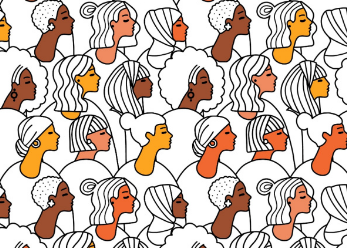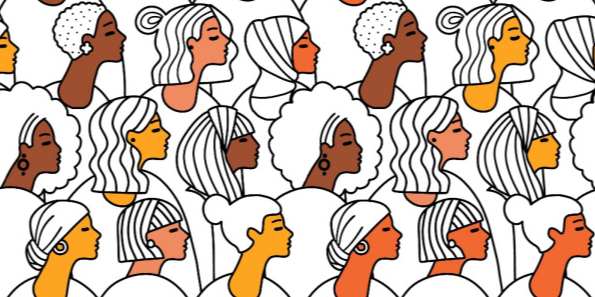
Lana Sham/ Shutterstock
In this Higher Ed Careers interview, HigherEdJobs speaks with Dr. Sally Roesch Wagner, a founder of one the first college-level women’s studies program in the United States. Wagner discusses the great strides made by women in academia but also shines a light on the ways in which our country is still failing women.
Leah Jackson, HigherEdJobs: Please tell us about your current position in higher education and the path that led you there.
Dr. Sally Roesch Wagner: I was part of a group of students who occupied the California State University, Sacramento (then Sacramento State College) campus in the spring of 1970 after the murders at Kent and Jackson State and the U.S. invasion of Cambodia. Sharing experiences in “Strike City,” we realized we had a common experience of feeling excluded in our classes, which seemed far removed from our lives. We had begun a women’s liberation consciousness-raising group the year before. The juncture of these two things led to the creation of Alternative Education classes, many taught by students, some of which were later incorporated into the curriculum. Such was the case with my first women’s studies class I co-taught as an Alternative Education Experimental Honors course in 1971, “Introduction to the Women’s Movement,” with no textbooks (there weren’t any!), just mimeographed handouts.
Women’s studies didn’t emerge out of academia; it grew out of the grass-roots women’s liberation movement. I’m proud to have been part of the roomful of women creating the Preamble to the National Women’s Studies Association founding convention in 1977. We wrote: “Women’s studies owes its existence to the movement for the liberation of women; the women’s liberation movement exists because women are oppressed.” Before we had a name for it, we recognized intersectionality, naming it in the Preamble: “Women’s studies, diverse as its components are, has at its best shared a vision of a world free not only from sexism but also from racism, class-bias, ageism, heterosexual bias — from all the ideologies and institutions that have consciously or unconsciously oppressed and exploited some for the advantage of others.”
We formed a women’s studies program and offered the nation’s first minor in the discipline. CSUS Women and Gender Studies continues to offer my 1971 course, now retitled “Intro to Women’s Movements in the U.S.” I had the unique joy of returning last year to teach a section of this course I created 51 years later.
I also teach in the Renee Crown Honors Program at Syracuse University, with some of my courses cross-listed with Women’s Studies. One of my favorite non-women’s studies offerings is “Activism in the ’60s: Sex, Drugs, and Rock and Roll.” The class fills quickly.
Jackson: You’ve worked in higher education for more than 50 years. What are some of women’s achievements in academia during this time that have made you most proud?
Wagner: We were nowhere in the academy, and now we are everywhere. From being the academic outliers, feminist scholars and scholarship are now part of the mainstream, even the canon. While not full inclusion, it’s an extraordinary 50-year progress. Women’s denied accomplishments are being uncovered every day in every field. And pedagogy we introduced, like personal journals and the praxis of theory-building based on activism critiqued, controversial when we innovated them, are now part of teaching across disciplines.
Jackson: What are the inequities that women are still facing that concern you the most?
Wagner: It is outrageous that we fall behind the rest of the industrialized nations in every measurement of women’s equality and quality of life. We have fewer women in government, worse childcare, higher maternal and infant mortality rates. Twenty-five Organisation for Economic Co-operation and Development (OECD) countries have better pay equity than the U.S., and only three OECD countries have worse than ours. The U.S. is one of only seven countries — including Iran, Sudan, Somalia, Nauru, Palau, and Tonga — that have failed to ratify CEDAW, The Convention on the Elimination of All Forms of Discrimination Against Women, which 186 countries have ratified. And 100 years after its introduction, we still do not have Equal Rights protected in the Constitution.
Then there’s the revolutionary two-step: one step forward and two steps back as the backlash robs us of our gains. In 1868 suffragist Matilda Joslyn Gage wrote, “Enforced motherhood is a crime against the body of the mother and the soul of the child.” She, along with Elizabeth Cady Stanton, believed in the sacred right of the unborn, and the most sacred right of all was to be wanted and chosen, which could only be guaranteed if birth was a woman’s choice. Now, 155 years later, SCOTUS has taken us back to the governmental crime against women of enforced motherhood.
Jackson: Your website addresses common misconceptions about the women’s suffrage movement. Can you briefly explain what it is that we are getting wrong time and time again? How are these misconceptions created, and why are they dangerous?
Wagner: Here are a couple of examples. Women’s right to vote didn’t begin on this land a little over 100 years ago with the suffrage amendment in 1920. Women of the Haudenosaunee confederacy have had political voice for 1,000 years. The clan mothers have the responsibility for nominating, holding in office, and removing the male leadership. One cause for removal: abusing a woman or child! Another example is the failure to acknowledge the racism that became policy of the National American Woman Suffrage Association in the final stages of the suffrage campaign. To win white southern men, the NAWSA argued that woman suffrage was a way to maintain white supremacy because there were more white women than African Americans — men and women. These later suffragists also played to the xenophobia sweeping the country by assuring that there were more native-born women than immigrants, so native-born supremacy would be strengthened.
These misconceptions are removed with more BIPOC women in the academic world and the ongoing work of white scholars to recognize the entrenched racism poisoning our scholarship.
Jackson: The theme for the 2023 Women’s History Month is “Celebrating Women Who Tell Our Stories.” What does that theme mean to you personally? What can you share about the fight for women’s voices and stories to be heard over the years? In what ways have our voices been muffled or silenced?
Wagner: A scientist, Margaret Rossiter, coined the term “The Matilda Effect” in 1993 to refer to the systematic undervaluing of women’s contribution to science and the frequent practice of attributing women’s work to men. Rossiter named it after suffragist Matilda Joslyn Gage, who both wrote women’s accomplishments into history, then was written out herself. “The Matilda Effect” has spread worldwide as a focal point for the widespread movement to “repopulate history” (as historian Mary Beard envisioned) with excluded women. As this knowledge emerges, we move away from the “great men and their great wars” old-style history to an expanded sense of who we are as a people.
I’m excited that these women’s stories are also being told increasingly in a different, more accurate way. We are understanding them better in context. Rosa Parks was not a woman who took a restricted bus seat because she was tired; she was a seasoned activist and savvy part of the Civil Rights movement. We are also challenging the individualistic, monolithic, and narrow interpretation of history. An individual woman may have sparked a change, but the movement she generated carried it forward. The women’s rights movement, at various times and with different groups, has been both intersectional and reactionary. And each hera we venerate has a less perfect side to her herstory, as well. Margaret Sanger was a spark in transforming women’s reproductive rights; she was also a eugenicist. Knowing the full story of a woman’s contribution gives us a clearer path forward, recognizing pitfalls while celebrating victories.
Jackson: You’ve taught women’s studies for 51 years. Why are you passionate about this field, and what do you hope your students take away from their courses with you, whether it’s one course or they’re getting their degree in the discipline?
Wagner: I’m passionate about women’s studies because it has the potential to rebalance, transforming our understanding of who we are as a people and how we need to recreate the world, while giving us tools individually and collectively to create a sustainable world.
I hope my students come away empowered with a sense of outrage against injustice and a passion to change the world, a belief they can play their part, a playbook for what that looks like, and an understanding of themselves as part of a process, carrying on the work of the past and passing it on to the future. In the words of Matilda Joslyn Gage in her first women’s rights convention speech in 1852: “All great reforms are gradual. Fear not any attempt to frown down the revolution already commenced; nothing is a more fertile aid of reform, than an attempt to check it; work on!”
